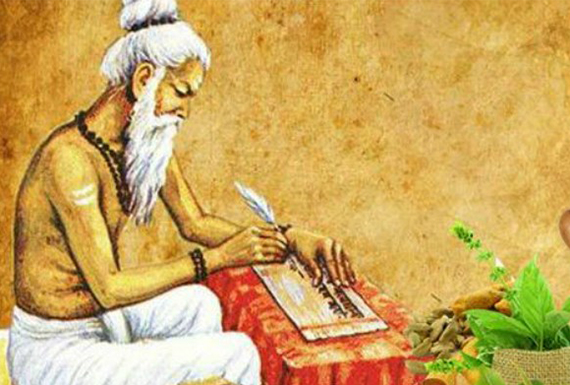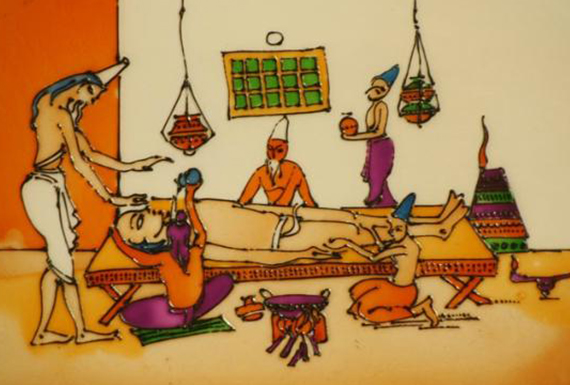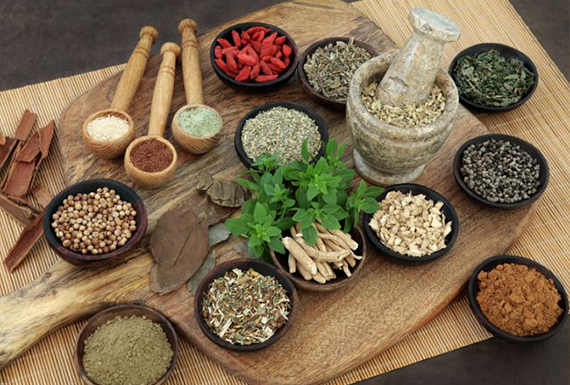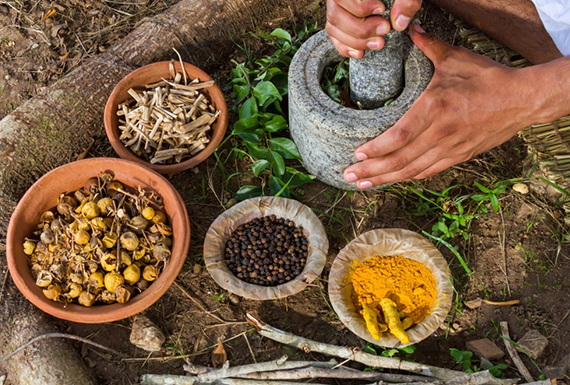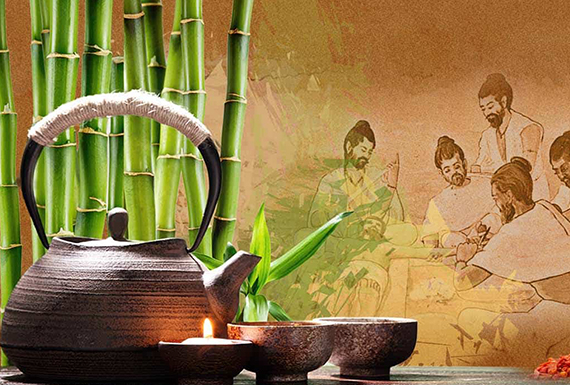Ancient Ayurveda
Ayurveda, a Natural system of medicine
-
What is Ayurveda?
Ayurveda, a natural system of medicine, originated in India more than 3,000 years ago. The term Ayurveda is derived from the Sanskrit words ayur (life) and veda (science or knowledge). Thus, Ayurveda translates to knowledge of life. Based on the idea that disease is due to an imbalance or stress in a person's consciousness, Ayurveda encourages certain lifestyle interventions and natural therapies to regain a balance between the body, mind, spirit, and the environment. Ayurveda treatment starts with an internal purification process, followed by a special diet, herbal remedies, massage therapy, yoga, and meditation. The concepts of universal interconnectedness, the body's constitution (prakriti), and life forces (doshas) are the primary basis of ayurvedic medicine. Goals of treatment aid the person by eliminating impurities, reducing symptoms, increasing resistance to disease, reducing worry, and increasing harmony in life. Herbs and other plants, including oils and common spices, are used extensively in Ayurvedic treatment. In India, Ayurveda is considered a form of medical care, equal to conventional Western medicine, traditional Chinese medicine, naturopathic medicine, and homeopathic medicine. Practitioners of Ayurveda in India undergo state-recognized, institutionalized training. Currently, Ayurvedic practitioners are not licensed in the United States, and there is no national standard for Ayurvedic training or certification. However, Ayurvedic schools have gained approval as educational institutions in some states. Ayurveda can have positive effects when used as a complementary therapy in combination with standard, conventional medical care.
-
Ayurveda and its Treatments
The human body is made up of three components as per Ayurveda and those components comprises of two elements each. The components are - Vata, Pitta and Kapha. Vata dosha comprising of space and air governs all the movement in the mind and body. It controls the blood flow, elimination of wastes, breathing and movement of thoughts across the mind. Pitta dosha comprises of fire and water that is responsible in governing all the heat, metabolism and transformation in the mind and body. It controls the way we digest the food and how we metabolize our sensory perceptions. It lets us differentiate between what is right and wrong. Last but not the least Kapha comprising of water and earth governs all structure and lubrication in the mind and body. It controls the weight, growth and lubrication for the joints and lungs and formation of all the tissues in the body.
-
Ayurveda Concept
Ayurveda, Ancient Indian System of Medicines deals with knowledge by applying that the quality and span of social and personal health status can be predicted , restored, maintained and upgraded to lead a happy,peaceful & purposeful life. By following the principles of Ayurveda, proneness towards various types of diseases can be predicted; prevention of these diseases is possible by adopting the biologically required personalized way of living, eating, personalized panchakarma & herbal health supplements & positive thinking. The five elements termed as Panchamahabhuta namely Akasha (dark particles), Vayu (air), Agni (fire), Ap (water) and Prithvi (earth) are the smallest units of every exist-able entities even at energetic level. This universe is considered as a cosmic body and human being is thought to be its microcosmic unit as both is same at molecular level. These five basic elements get manifested in three physiological units – Vata, Pitta and Kapha which further are responsible for the development of other bodily elements like cells-tissues, organs, organ systems and as a whole complete body & the senses, mind which are architectured by soul [life principle]. The activities of these five elements in the diet and drugs are studied on the basis of concentration gradients of six Rasas (taste/active principles) – Madhura [sweat], Amla [sour], Lavana [salty], Katu [acrid, / pungent], Tikta [bitter] and Kashaya [astringent]. Complete activities of this universe at microcosmic & microcosmic level can be understood by studying the Panchabhautika Principle of Indian metaphysics.
-
THE ADVANTAGES OF AYURVEDA
Ashtangahridayam, the authorized user friendly voracious text of Ayurveda, compiled by the Vagbhatananta is seldom used anywhere in the world as it is vastly done in Kerala. The Vaidyas of Kerala are extra talented in this most ancient treatise of Ayurveda which many scholars prefer an innovation over the prior samhitas of Charaka and Sushruta, the originators of Ayurveda. It is in Kerala that Kashaya Chikitsa (treatment with concoction) has come to be as a ranked protocol including hundreds of Kashayams that were scientifically categorized and organized in accordance with several treatment needs. Keralite Vaidyas were the first to concentrate on the anti oxidant properties of Abhyangam leading to the profusion of Kizhis. The vast volume of Ayurveda colleges and the largest number of practitioners in comparison to any region in the world has led to a tradition of Ayurveda research in a scientific and ideal manner in Pune.
-
Ancient Indian Wisdom Of Living & Healing
Ayurveda is the oldest organized system of medicine rooted on finest scientific protocols of holistic health influenced from Vedic concepts & philosophies of ancient India. Because of its effectiveness in treating the root cause of the problem and identifying the root cause by accurate diagnosis using its scientific protocols, Ayurveda is considered as Mother of All systems of medicine. All living beings, including animals probe and survey their surroundings to know their environment, with a natural curiosity. Humans have reached a higher plane of curiosity in probing the secrets of nature. The special quality of seeking knowledge that the human race has acquired through evolution is abstract thought, or the probing of the world of ideas. This is what makes human race unique and all civilizations worthy of study. We find in their legacy arts, architecture, writings, musings, inventions, dwellings and habitats, and a body of thought, or philosophy through their footprints on sands of time. Ancient Indian Civilization, amongst other world civilizations is the oldest and is distinguished by its profound thought and wisdom. This civilization is identified as the Vedic Civilization, Sindhu-Sarasvati civilization and Aryan civilization.
All Rights Reserved © Gut Cure Ayurveda.
Designed By www.attitudeinfotech.com
